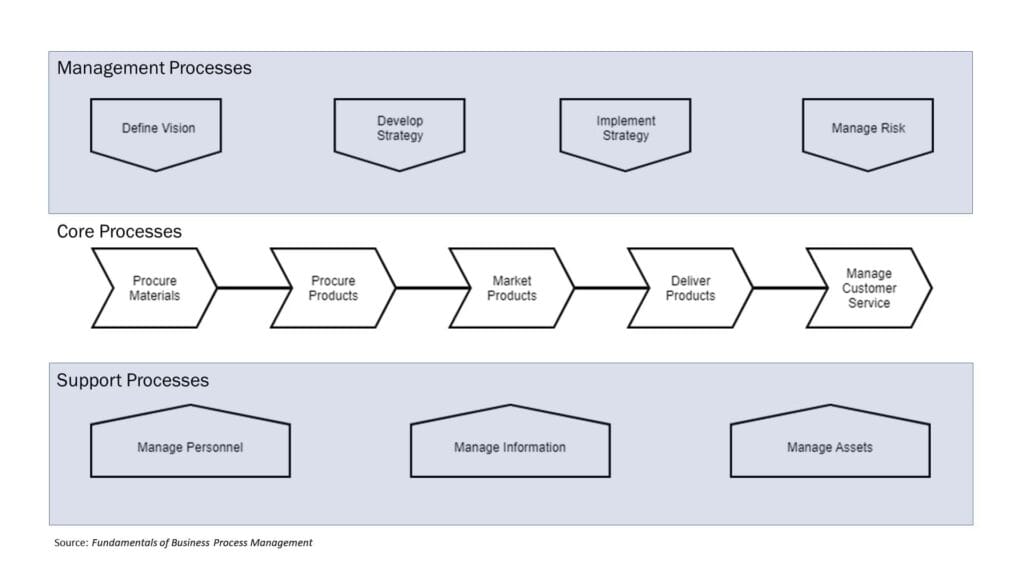The Characteristics of a Business Process
In the field of business process management (BPM), a process is defined as a set of interrelated activities or tasks that collectively create value for an organization and its stakeholders. A process typically has a clear goal or objective that it is designed to achieve, and it may involve people, technology, and other resources working together to accomplish that goal.
BPM is concerned with analyzing, designing, monitoring, and improving processes within an organization to ensure that they are efficient, effective, and aligned with the organization’s overall strategy and goals. This involves identifying and eliminating bottlenecks, streamlining workflows, and reducing waste, among other things.
A business process is repeatable and has defined start and endpoints. A process instance is a specific occurrence of a business process.
The Components of a Business Process
Processes consist of the following:
- Events correspond to things that have no duration.
- Activities refer to a unit of work that takes time to complete.
- Actors include humans and organizations as well as software systems acting on their behalf.
- The actor who benefits from the output of a process is called the customer, which can be internal or external.
- Objects can be physical (e.g., equipment) or informational (e.g., electronic records).
Categories of Business Processes

Source: Fundamentals of Business Process Management
- Core processes are those that directly add value to external customers.
- Support processes enable core processes.
- Management processes provide direction, rules, and practices.
Business Processes Aren’t Projects or Procedures
- Every project is unique, never to be repeated in the same way.
- Processes describe what to do; procedures describe how to do it.
Business Processes Are Important
Business processes
- Help organizations identify the work required to achieve their goals
- Break work into repeatable steps that yield consistent outcomes
- Identify resource requirements
For Discussion
- What is an example of a core process in your organization?
- Who is the customer? What value do they receive as a result of the execution of the process?
- What actors are involved in executing the process? Are they internal or external to your organization?
- What event triggers the start of an instance of the process?
- What key tasks or activities must be completed as part of the successful execution of the process?

